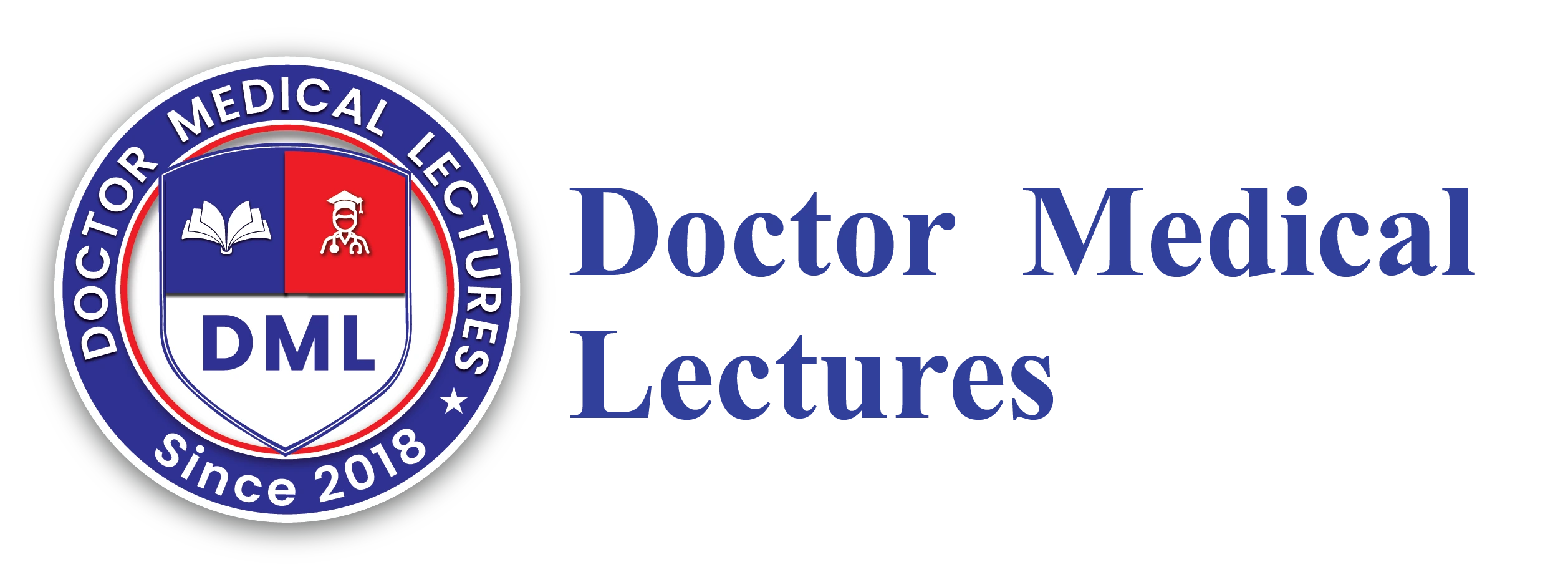Introduction
Internal medicine can be defined as the subfield of medicine that specializes in diagnosing, treating and preventing adult-related diseases. It seeks to promote overall health and wellbeing among adult populations while treating diseases that affect different organ systems. Internal.

encompasses chronic and acute illnesses and addresses complex healthcare issues through long-term care services. Along with treating existing illnesses, internal medicine specialists play an integral part in preventing disease and maintaining overall wellness. On the contrary, they provide comprehensive care that takes all patients’ health history, lifestyle habits and individual health needs into consideration. Furthermore, they often act as primary care doctors and collaborate with specialists as needed for maximum patient benefit.
Understanding of internal medicine
Internal medicine, commonly referred to as internalist, specializes in the diagnosis, treatment and prevention of adult illnesses. Doctors trained in this specialty field, known as internists, are adept at managing complicated medical conditions that impact multiple organ systems at once. As well as chronic illnesses and providing preventative treatments designed to enhance overall patient wellbeing.
This is not only diagnoses common diseases like hypertension and diabetes, but can also treat rare or complex illnesses. Internists usually work in clinics, hospitals, or private practices with other specialists collaborating on the highest quality treatments available to their patients. Taking both emotional and physical aspects into consideration when treating patients.
Internists play an essential role in primary healthcare by overseeing treatments, monitoring developments, and tailoring therapies to individual patient needs. Therefore, internal medicine forms an integral component of healthcare as it ensures patients receive expert assistance for any variety of health concerns.
The Role of an Internist
Internalists are medical specialists specializing in treating and diagnosing adult diseases, excluding surgery. As opposed to surgeons, internalists focus on managing medical issues via medicines as well as lifestyle modifications and preventive treatments; their training enables them to identify complicated conditions affecting multiple organs or systems within the body.
Internists specialize in human anatomy and are adept at treating various maladies that don’t necessitate surgery. Internists are the go-to source for those experiencing general health problems as they specialize in managing both acute and chronic conditions. Furthermore, internists develop long-term relationships with their patients that ensure continuity of care as their health needs shift over time.
The Role of Internal Medicine in Healthcare
Internal medicine is at the core of healthcare delivery, offering adults comprehensive medical attention for both acute and chronic illness. Internists specialize in adult healthcare and their work is especially critical when managing complex medical problems affecting multiple organs or systems. Thus internists may serve as consultants to other physicians when cases become complex or poorly-understood.
Internal medicine practitioners play a pivotal role in both treating a range of ailments as well as preventing future ones. Internal medicine plays an essential role in making sure patients live long and healthier lives as healthcare technology evolves and becomes more advanced; their function will only become increasingly vital as time progresses.
Core Areas of Internal Medicine
- Cardiology: Cardiology is one of the core areas of internal medicine and cardiologists specialize in diagnosing and treating cardiovascular conditions. Such as coronary artery disease, heart failure, arrhythmias, as well as their early detection through intervention or early detection measures. Cardiologists play an essential part in internal medicine as a vital part of diagnosis and management for all heart issues that need addressing – making cardiology one of its core disciplines.
- Endocrinology: Endocrinology refers to a subspecialty of internal medicine which specializes in hormone production by glandular systems such as the endocrine system and its glandular organs. Endocrinologists specialize in treating thyroid and metabolic conditions which, left untreated, may lead to serious complications that require appropriate medical intervention. The endocrinologists thus play a vital role in internal medicine practice.
- Gastroenterology: Gastroenterologists, an area of internal medicine specializing in digestion, specialize in treating conditions. Such as IBS (irritable bowel syndrome) as well as gastroesophageal resuscitation disease (GERD) and liver disorders. Internists play an integral part in managing chronic illnesses which have an impact on digestive tract. Making this field of expertise essential to overall healthcare provision.
- Pulmonology: The field of Pulmonology deals with conditions associated with both the lungs and respiratory system. Pulmonology specialists can treat and diagnose conditions like asthma, chronic obstructive lung disease (COPD). Pneumonia and lung cancer – conditions which have become more prevalent over time and which necessitate specialization within this discipline. With an ever increasing rate of COPD cases making Pulmonology even more essential.
- Rheumatology: This field deals with inflammatory and autoimmune conditions like arthritis, lupus, and Gout. Rheumatologists specialize in conditions that affect joints, muscles and bones – and long-term treatment strategies are key in managing such ailments effectively – making rheumatology an integral component of internal medicine.

The Importance of Internal Medicine
Internal medicine is a critical element in providing adults with comprehensive healthcare. It plays an especially essential role in treating chronic illnesses such as hypertension, diabetes and heart disease that require long-term monitoring and treatment by professionals trained in this area. By properly overseeing these conditions internists can reduce hospitalizations while improving patients’ quality of life and ultimately prevent complications altogether.
Internal medicine plays an integral part in preventive healthcare. With regular checkups, diet advice, and vaccination programs internists help decrease the likelihood of chronic illnesses developing; their focus lies on promoting wellness and health while decreasing disease burden in society as a whole.
The Scope of Internal Medicine
Internal medicine plays a vital role in diagnosing, treating and preventing an array of adult illnesses. It specializes in comprehensive treatment plans that encompass ailments that affect different organ systems; additionally internists specialize in chronic illnesses like hypertension, diabetes and heart diseases as well as providing preventative care by encouraging healthy lifestyle choices and conducting regular tests on patients.
Internal medicine goes far beyond primary care and now includes subspecialties like cardiology, endocrinology and gastroenterology – these sub-disciplines allow internists to gain expertise in particular areas while still taking an encompassing approach towards patient health. Furthermore, internists collaborate closely with specialists for effective and coordinated treatments plans.
Internal medicine continues to advance with advancements in medical research and technology. Therefore, it remains an integral part of modern medicine providing patients with personalized and evidence-based treatment plans.
Challenges
Internal medicine presents numerous challenges that doctors must contend with daily. Chief among them are the complex situations arising in patient cases which require extensive expertise and critical thought; many chronic illness sufferers require attention from doctors in order to avoid complications from multiple illnesses simultaneously. Furthermore, due to advances in medical research that occur rapidly over time doctors must constantly adapt themselves so as to offer quality healthcare at all times.
Rising patient loads present another key challenge. As the demand for healthcare increases, internists must provide efficient and quality care while meeting all patient needs – however administrative tasks like document processing or insurance requirements consume precious minutes that should instead be spent directly providing care for patients.
Communication plays an essential part in internal medicine. Physicians must convey treatments, diagnoses, and lifestyle modifications effectively to their patients who may possess different degrees of knowledge about health. Any confusion may lead to unintended adherence of treatment programs which could alter patient outcomes negatively.
Mental and emotional fatigue is a frequent side effect of working in internal medicine, where internists face life-threatening issues as well as delivering tough news or dealing with stressful situations. At times this leads to burnout affecting both personal health and professional performance.
Internal medicine remains an attractive career field despite these obstacles, with doctors adapting quickly to technological innovations, honing their patients’ communication abilities and prioritizing self-care to overcome challenges and provide outstanding medical care to their patients.
Future of Internal medicine
Internal medicine’s future will likely undergo rapid transformation due to technological advancement, shifting demographics of patients and cutting-edge treatment methods. With machine learning and artificial intelligence integrated into diagnostics tools, doctors will have access to powerful tools that improve accuracy and efficacy of treatments while personalized healthcare will become more widely adopted; offering treatments tailored specifically for an individual based on genetic profiles.
As preventive healthcare becomes an increasing focus, its presence will alter the relationship between doctor and patient in favour of proactive health management rather than reactive treatments. With telemedicine expanding, specialists will become more accessible in areas that have historically been underserved; moreover, interprofessional collaboration among internists, pharmacists, specialists, as well as other healthcare professionals will increase as they collaborate together on providing a holistic service.
Yet, issues such as physician burnout and the growing complexity of managing chronic diseases will require systems-wide solutions. Implementing new technologies while catering to patient needs are crucial elements to shaping healthcare’s future.
Conclusion
Internal medicine plays an integral part in diagnosing, treating and preventing various illnesses. Furthermore, its main focus is providing comprehensive patient care for complex medical conditions while medical research continues to make advances that enhance treatments available to us. Specialists of internal medicine collaborate with other health experts to offer holistic care, offering patients individualized and effective treatments early detection can enhance overall health outcomes thus continual learning and improvement play an integral part of providing better health and longevity outcomes through internal medicine.
Frequently Asked Questions
Question 1: What is internal medicine?
Internal medicine, commonly referred to in some countries as internal health medicine, specializes in the diagnosis, prevention and treatment of adult illness. It encompasses diseases that impact internal organs as well as systems.
Question 2: What are the examples of internal medicine?
- Addiction Medicine.
- Adult Congenital Heart Disease.
- Advanced Heart Failure and Transplant Cardiology.
- Cardiovascular Disease.
- Clinical Cardiac Electrophysiology.
- Clinical Informatics.
- Critical Care Medicine.
- Endocrinology, Diabetes, and Metabolism.
Question 3: What is internal medicine in Pakistan?
Internal medicine doctors are specialists who employ scientific knowledge and clinical experience to diagnose, treat, and prevent illness in adults across a broad spectrum of health. Internists possess expertise in handling both common as well as rare medical conditions.
Question 4: What patients are seen in internal medicine?
Internal Medicine physicians provide critical medical services for chronic illnesses, including hypertension, heart disease, obesity, diabetes and pulmonary conditions. Other healthcare providers often turn to them because of their expertise at linking dots, solving issues and finding solutions.
Question 5: What is the concept of internal medicine?
Internal medicine can be defined as the branch of medicine which deals with nonsurgical or nongynecologic diseases that affect adults, without surgery or surgical interventions. Within internal medicine there are various subspecialties, each offering board certified training and exams.
